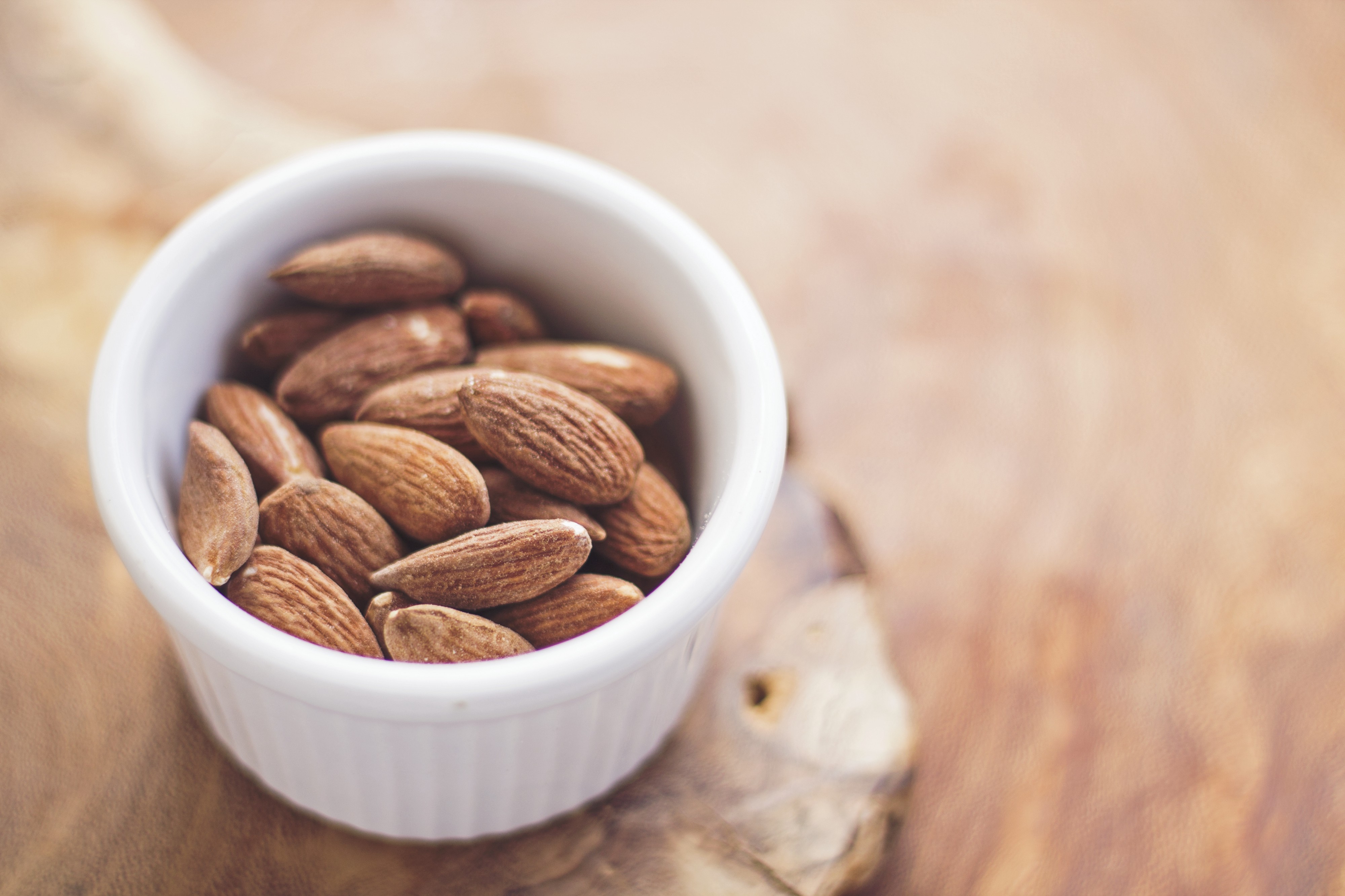Almonds have numerous science-backed health benefits to humans. Eating at least ten almonds a day goes a long way in incorporating valuable nutrients to your diet. So, a bag of almonds is quite an excellent way to snack! While you are relishing your bites, it is natural to wonder, If Your Dog can have some Almonds too and receive the same nutritional benefits?
 Photo by Juan Jos Valencia Anta on Unsplash
Photo by Juan Jos Valencia Anta on Unsplash
What are the Potential Dangers of Almonds for Dogs?
1. Potential Choking Hazard
Almonds are obstruction hazards to our canine companions because they seldom chew their food. Our dogs? mouth is not set up for chewing because a majority of their teeth are for crushing and ripping, not grinding. Some dogs even swallow their kibble whole. However, kibbles are softened by the saliva. Consuming a whole almond, on the other hand, could lead to life-threatening obstructions of the windpipe or the esophagus. This is especially true for small and toy breeds.
2. Risk Of Indigestion
Your dog?s digestive system is another matter to consider when asking If dogs could eat almonds. Perhaps a handful of almonds won?t knock out a ravaging Labrador, but one thing is for sure ? his digestive system will struggle. The risk of intestinal blockage is exceptionally high in puppies and toy breeds. They are indigestible for dogs, so popping a handful of almonds causes your dog to poop bits of them. You are also likely to find blood in your dog?s stool.
3. Possible fluid retention
Dogs love the savory taste of almonds, especially the flavored variety ? barbecue, smoked, cinnamon, etc. Packaged nuts are seasoned heavily with salt. Too much salt makes your dog seriously thirsty and causes increased water retention. Water Retention is particularly dangerous to dogs with heart ailments. It also injures the kidneys, which may lead to renal problems. Likewise, excessive consumption of packaged almonds can lead to salt toxicity. Flavored ones are worse because they contain artificial flavors and other derivatives that could open another medley of potential health risks to dogs. So, don?t even think of leaving a bag of these nuts on the couch.
4. Almonds could aggravate pancreatitis
Almonds are quite high in fat, which is the primary contributor to developing pancreatitis. It is the inflammation of the pancreas; usually marked by abdominal pain. Other symptoms of pancreatitis are loss of appetite, lethargy, vomiting, and diarrhea. This condition can lead to simple indigestion or become severe and shorten your dog?s life. Pancreatitis should be accurately diagnosed and aggressively treated by your vet.
5. Increase in the risk of bladder and kidney stones
The high phosphorus content in nuts, such as almonds, increases the likelihood of forming bladder and kidney stones ? both of which are painful for dogs. The bladder may rupture if the obstruction is not removed, which is potentially life-threatening and requires immediate medical attention. Beagles, Bulldogs, dachshunds, and pugs are genetically predisposed to bladder stones.
6. Almonds may cause allergies
Even a single almond can impact your dog?s health if he is allergic to tree nuts. Keep a close watch for signs of an allergic reaction and call your veterinarian right away. Signs to look out for include sneezing, hives, coughing, and difficulty breathing.

7. Might expose your dog to aflatoxin poisoning
Aflatoxin is a toxic substance found in crops and nuts, such as almonds, Brazil nuts, peanuts, and pistachios. Produced by the common mold Aspergillus that causes food spoilage. Aflatoxin in food is mildly toxic to humans, but our canine companions are sensitive to it. So, be sure to close the cupboard door; otherwise, your dog might nudge it in and steal some slightly stale almonds.
Can Dogs Eat Almond Milk?
Almond nuts are not recommended for dogs because it causes obstruction and indigestion. This brought owners to the idea of giving almond milk to their dogs, instead. so it doesn?t surprise me when people ask, ?Can dogs have almond milk??
Pet authorities, such as the American Society for the Prevention of Cruelty to Animals, do not recommend almond milk to dogs, as they become lactose intolerant after their mothers wean them. Adult dogs do not possess the lactase enzymes required to break down lactose. As a result, your dog could suffer from diarrhea and vomiting if he takes in large amounts. Puppies should not drink almond milk, either. Puppies should only drink their mother?s milk, but in the case of an absent mother, a formula designed for puppies is the second-best option.
The truth is, our dogs can survive without milk, and even puppies only need it for a short time. Note that your dog will not receive beneficial nutrients from almond milk. It is only an expensive yet unnecessary addition to your dog?s diet.
What Should You Do if Your Dog Eats Almonds?
Dogs of different sizes may have different reactions to identical quantities of almonds ingested. A Labrador may remain in good spirits after stealing a handful of almonds, but a curious Bichon is at risk for esophageal or intestinal obstruction. Monitor your dog for diarrhea, vomiting, unsettled sleeping, and changes in appetite within the next 6 to 12 hours. Any sign would warrant a trip to the vet.
If your dog ate a large bag of almonds, say a three-pound bag, in a short period, rush your greedy pal to the emergency vet for treatment. Supportive treatment, such as IV fluids for dehydration and pain management medications, shall be given for immediate concerns. Your veterinarian may use a specific drug that will make your dog evacuate the almonds from his stomach. If there is obstruction, abdominal surgery is likely required.
Conclusion
Although almonds are healthy for human consumption, they are not necessarily the best foods for our dogs to have. Our canine companions have different nutritional needs that adhere to their internal structure. While almonds are not toxic, it is one of those foods that dogs cannot digest as quickly as us. So, can dogs eat almonds? The long and short of it is NO. Your dog may have taken a few bites in the past and felt fine, but now that you are aware of its hazards, you should tuck away any bag of almonds you have.
References and further readings:
https://www.certapet.com/can-dogs-eat-almonds/
https://wagwalking.com/condition/almond-poisoning
https://www.quora.com/What-should-I-do-if-my-dog-ate-almonds


